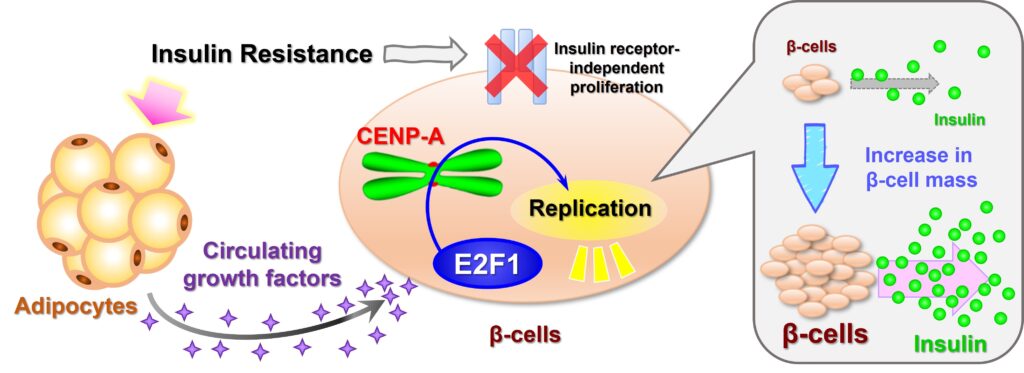Jun Shirakawa1,2,*, Yu Togashi 3, Giorgio Basile 3, Tomoko Okuyama 2, Ryota Inoue 1, Megan Fernandez 3, Mayu Kyohara 2, Dario F. De Jesus 3, Nozomi Goto 2, Wei Zhang 3, Takahiro Tsuno 2, Tatsuya Kin 4, Hui Pan 3, Jonathan M Dreyfuss 3, A. M. James Shapiro 4, Peng Yi 3, Yasuo Terauchi 2, Rohit N. Kulkarni 3,*. (1. Laboratory of Diabetes and Metabolic Disorders, Institute for Molecular and Cellular Regulation (IMCR), Gunma University, Japan; 2. Department of Endocrinology and Metabolism, Graduate School of Medicine, Yokohama City University, Yokohama, Japan; 3. Joslin Diabetes Center, Harvard Medical School, Boston, MA, USA; 4. Clinical Islet Laboratory and Clinical Islet Transplant Program, University of Alberta, Edmonton, AB T6G 2C8, Canada; *, Corresponding Author)
About
Prevention or amelioration of declining β-cell mass is a potential strategy to cure diabetes. Here we report the pathways utilized by β-cells to robustly replicate in response to acute insulin resistance induced by S961, a pharmacological insulin receptor antagonist. Interestingly, pathways that included CENP-A and the transcription factor, E2F1 that were independent of insulin signaling and its substrates, appeared to mediate S961-induced β-cell multiplication. Consistently, pharmacological inhibition of E2F1 blocked β-cell proliferation in S961-injected mice. Serum from S961-treated mice recapitulated replication of β-cells in mouse and human islets in an E2F1-dependent manner. Co-culture of islets with adipocytes isolated from S961-treated mice enabled β-cells to duplicate, while E2F1 inhibition limited their growth even in the presence of adipocytes. These data suggest insulin resistance-induced proliferative signals from adipocytes activate E2F1, which may be a potential therapeutic target, to promote β-cell compensation.
Paper information
“E2F1 transcription factor mediates a link between fat and islets to promote β-cell proliferation in response to acute insulin resistance.
” Cell Reports誌(Cell Press:米国),
公開日:2022年10月4日11時(米国東部時間)(日本時間:2022年10月5日0時)
Online URL
https://www.cell.com/cell-reports/fulltext/S2211-1247(22)01277-3








